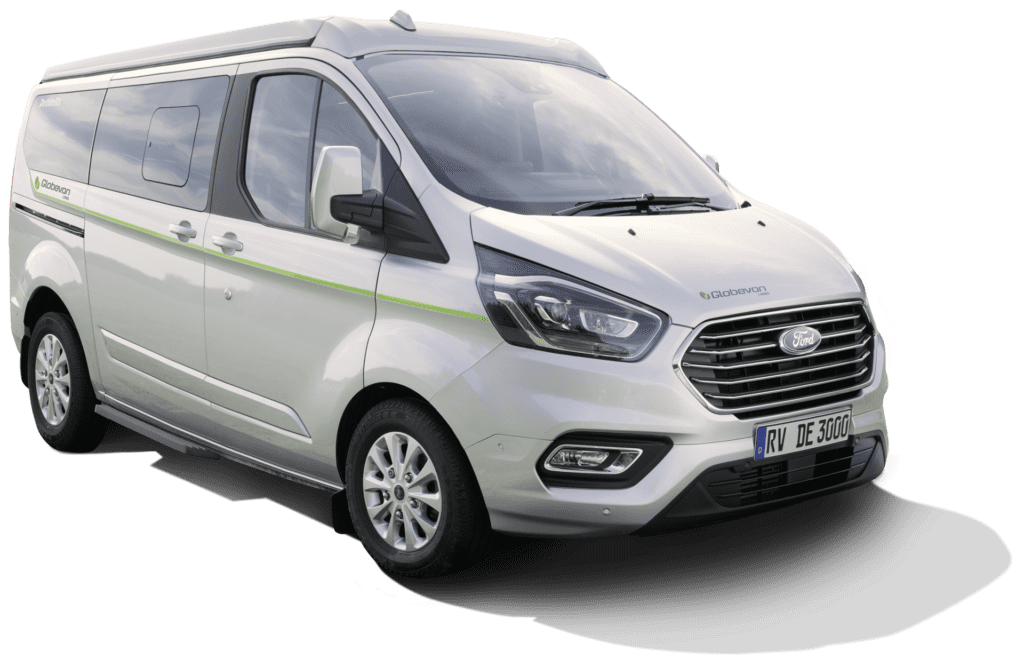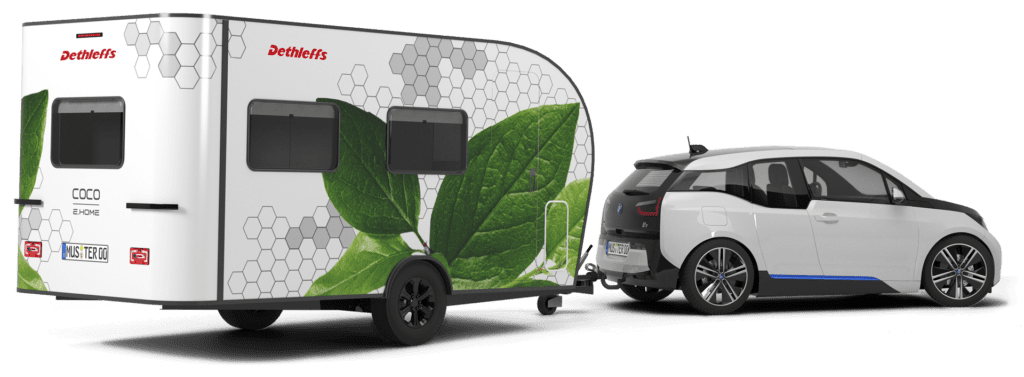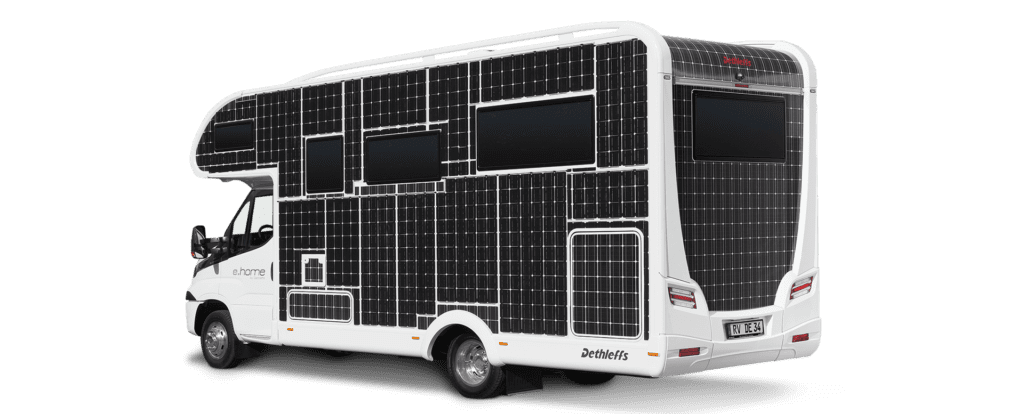Main Menu
Destination Future: A whole new world of electromobility!
When we presented the first all-electric motorhome in our study E.HOME der Welt (E.HOME of the World) in 2017, we undertook genuine pioneering work in and for our industry. It was already clear to us back then that electromobility would also come to caravanning at some stage. Although not as fast as the passenger car sector, due to the caravan’s specific use. After all, we all know a motorhome should have a certain amount of range. The clue is in the name: MOTORhome. For this reason, we took a proactive approach and faced the challenge of electromobility in the caravanning industry at a very early stage. As it turned out, we were actually the first well-known manufacturer of recreational vehicles to do so.
We also view our philosophy and our claim of being a ‘friend of the family’ as a commitment to sustainability, and we therefore also consider ourselves to be a pioneer in the electromobility sector.
Electromobility is driving transformation in motorhomes AND caravans
Electromobility will be associated with a fundamental transformation in the way both motorhomes and caravans are used. After all, electromobility in motorhomes will mean more than just placing an electrically powered chassis under the current vehicle body. There are new opportunities here for the overall vehicle concept. When it comes to classic caravans, the prevalence of electromobility that is to be expected will pose a huge challenge. After all, we can assume that the battery capacity of electric cars will not be sufficient for managing the realities of long travel distances for the foreseeable future, especially when towing a trailer. But we wouldn’t be pioneers if we didn’t already have a solution up our sleeves for this, too. With our vision of the Dethleffs E.HOME caravan, which we presented in 2018, we plan to reinvent the basic notion of the caravan and expand its possible applications – even in the age of electric cars. The E.HOME caravan, which has now reached the prototype stage, completely reinterprets the innovation invented by our company founder Arist Dethleffs back in 1931. As this caravan drives itself, thus revolutionising caravanning of the future. It represents a milestone in sustainability and the everyday practicality of a caravan. But no matter which drive types are coming our way in future, we can promise you one thing: Caravanning will not die out. We’ll make sure of it!Why are we doing this at Dethleffs?
Just like the pioneer who founded our company, we have visions and plans. One of them is to conserve Mother Earth for as many generations as possible. We are demonstrating that these visions don’t have to stay visions and that we are working hard on the future of motorhome travel and caravanning holidays in many ways. Our aim is to make changes that will give us the gift of a long, wonderful future. A future that involves the great outdoors, which we can enjoy as much as we want with our children and their children’s children (without a guilty conscience) in our recreational vehicles. As a friend of the family, we are responsible for this.
Sustainability at Dethleffs:
As a friend of the family, Dethleffs is committed to sustainability. At the end of the day, it is all about conserving nature for future generations. Alternative drives are a key aspect here – in caravanning, too. But the topic of sustainability is also on the agenda in many ways throughout our company. Be it homing our own bee colonies on company grounds, introducing paperless production in the newly built factory building, using a block-type thermal power station fed with our own wood waste, implementing clean waste separation throughout the company or launching initiatives to support cycling to work or to minimise general waste (principles of lean), there are always new methods, ideas and projects at our company that protect the environment in the long term.
Guilt-free holidays
Going on holiday is the best way to achieve good work-life balance. Trips to the countryside offer pure relaxation, while a city tour can also be an invigorating change of scenery. And you don’t need to have a guilty conscience, as caravanning compares really favourably to other holiday types when it comes to sustainability. Need examples?
Planes vs. motorhomes: When it comes to climate-neutral travel, motorhomes are not there yet. But compared to air travel, the carbon footprint for a family of four is much smaller when arriving by motorhome than by plane. Whereas the family’s journey would emit more than a ton of CO2 when flying from Munich to Majorca, this figure would be around 500 kg of CO2 on the similar route from Munich to Girona on the Spanish coast in the motorhome. If travelling from Munich to Palermo, the family would also go through more than twice as much CO2 when arriving by plane compared to travelling by motorhome.
Motorhomes vs. hotels: At the destination itself, camping is often the more environmentally friendly alternative to staying in a hotel, as the energy consumption is far lower. Many vehicles are fitted with solar panels, a sustainable source of energy. Water consumption per person is also less in motorhomes. After all, if it is up to you to fill the vehicle with fresh water and dispose of the waste water, you will be more conscious of your consumption. Bedding and towels are also changed and washed much more frequently in hotels. The same applies to food here: While hotels put on vast buffets and food is kept warm for guests over long periods of time, campers only purchase the amount of food they actually need.
Dethleffs Newsletter
Sie möchten mehr zum Thema e-Mobilität und Dethleffs erfahren?
Dann melden Sie sich kostenlos und unverbindlich zu unserem E-Mail Newsletter an.
Dann melden Sie sich kostenlos und unverbindlich zu unserem E-Mail Newsletter an.



